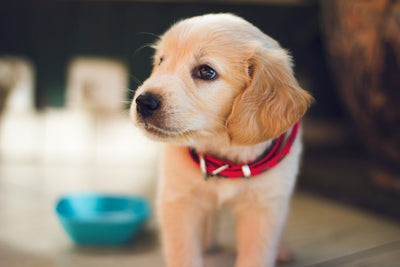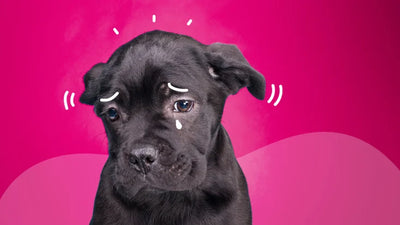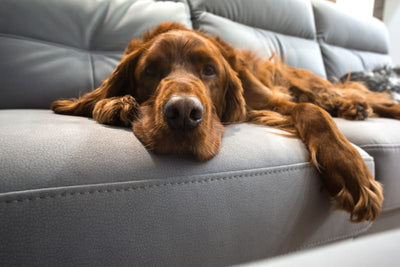The best age to bring a puppy home is 8-10 weeks. Although bringing a dog home later than this time doesn't mean your dog won't have any social skills; it just means that at 8-10 weeks, the puppy's mind and body are in a prime period of bonding and learning.

The primary socialization period for puppies is weeks 3 to 12. Social play increases around 7-8 weeks of age, and self-awareness of the unknown occurs between 6-8 weeks of age. By the end of weeks 3 to 14, puppies should be exposed to most situations they will encounter as adults.
Puppy training at home

One of the first things your puppy must learn is house training. Some puppies will be trained by their breeders and some will not; it depends on the breed and the breeder. Their bladders are small. You need to take your puppy outside to where you want the dog to do the moment he wakes up in the morning, after every nap, after every meal, after indoor playtime, and last thing at night.
Praising your puppy often when you go outside will be beneficial to your indoor training, so that your dog can feel the encouragement he can get after completing the training. Do not punish your puppy in any way for indoor accidents. There's a learning curve, just like with human babies. It may take longer than you think is necessary or possible, but if you put in enough effort, it will happen. For the rest of your dog's life, your time will be ruled by their bladder, but that's especially true now.

Just as puppies have to learn house training, they also need to learn house rules. If you don't want your dog to stay on the furniture all the time as an adult, don't let your puppy sit on the couch. Of course, you don't want your puppy to run out the front door at full speed, so you'll want to teach them where to be outside the door when it opens to ensure no harm comes to them. Reinforce the behaviors you want to see, change the behaviors you don't want to see, and reinforce behaviors that are incompatible with the undesirable behavior (e.g., walking on the mat instead of your lap when eating, chasing other pets, etc.)
Whatever the puppy does that he deems acceptable, even if you say "just this once," it will continue. The truth is, they don't understand English, so it is important that your whole family must follow the same rules, otherwise it will confuse the puppy and not help it develop good habits.

Puppy kindergarten is a good starting point for getting your puppy used to other dogs, although you usually have to wait until your puppy is up to date on its series of vaccinations an. They learn how to play with other families' dogs and how to get to know other dogs. Some dogs will be more timid or outgoing than others, but timidity is a red flag that needs to be addressed early. If your puppy is scared at 12 weeks, your adult dog will be too.

Basic social skills are very important for puppies, unless you are willing to live with a dog that will, steal food from your plate, eat your dropped medicine, occupy the sofa, and take it from your hands. Grill tongs and run away with your wallet.
Generally speaking, this puppy's behavior will get worse as it gets older, sometimes to the point where it's too much for the vet to handle, and your neighbors are afraid of them, so it needs to be addressed as early as possible. Attending training classes and exercising regularly at home are your best bets for having a manageable dog. Understand that training is not about training the dog, it is about training you to train your dog
Puppies also need proper socialization to grow into dogs that get along well with people, children, and other dogs. Always remember that socialization means contact, and from the dog's perspective, good experiences. Puppies should encounter new things every day. For example, daily contact with different things including hats, beards, large wallets, sunglasses and noisy shoes; puppies; adult dogs; dogs who don’t want to play with puppies and say so; people of different skin colors; people of different ages and voices Children; etc. The more positive experiences a puppy has, the more confident he or she will be as an adult.
Puppies are either awake or moving around, playing, running, and getting into mischief. They are a lot of work and a lot of fun at the same time. Sometimes you feel like you're too tired to handle it all, but you can.

Checklist for day 1
Cleaning supplies Your puppy may not be housetrained, and even if they are, they may get nervous or play for so long that they forget they're not supposed to eliminate on your floor. Whether you have carpets or not, it's a good idea to purchase an enzyme cleaner at any pet supply store because if the odor isn't removed, your puppy will think it's a good place to be.
Food. Puppies need specialized puppy food. Your breeder will be able to tell you what your puppy has been eating so that you can use the same things. Changing foods hastily may increase the risk of stomach upset, indigestion, and accidents. The best way is to mix previously eaten food with the new food and give your puppy an adjustment period.
Food and water bowls. While you can certainly use any bowl you have around the house for food and water during the first week, eventually you'll want bowls that look good. You may choose to invest in some stainless steel or ceramic bowls, which are less likely to harbor bacteria than plastic bowls.
Box. Using a crate can be an effective way to housetrain a puppy because puppies naturally dislike sitting around in a mess. Realistically, crates are helpful, but an exercise pen with a crate, feeding station, and elimination station is even better. If a puppy gets too excited, don't throw them in a crate to cool down as they will see this as punishment. Give them lasting treats, food, or puzzles, or take them for a walk. The crate should be large enough for the puppy to be able to stand up, turn around, and stretch inside.
Collars or harnesses and leashes. There really is a line between life and death, so a leash and something to connect it is needed.
Toys are priceless for puppies, but you need to be careful to purchase safe toys so your puppy doesn’t get hurt. Puppies and adult dogs can break teeth from chewing on toys that are too hard, or accidentally swallow soft toys that require surgery to remove. Don't let puppies play with your old shoes or they will think all shoes are toys. Just like babies, puppies see the world through their mouths and they will chew anything they can chew.

Checklist in the future

- Identity label. These products can be ordered from pet stores and many online sites. Add your cell phone number to your dog's collar or harness.
- Depending on local regulations, your dog may require a city license. To obtain a license, you must prove that your dog is vaccinated against rabies.
- Medicine: flea and tick prevention, heartworm prevention,may be deworming or antibiotics for infections. Your veterinarian will advise you.
- Poop bag. Feces can be taken home or to another acceptable storage location. You can use a regular old plastic bag, but if necessary, buy special products for this purpose, such as conpostable, scented, decorated with paw prints, with or without handles.
- You'll also need to develop a relationship with your puppy's veterinarian, which means the puppy must meet with the veterinarian in person under a veterinarian-client-patient relationship (called a VCPR). For the puppy's health, the puppy must see the doctor in person once a year.
- Identify the veterinary emergency/critical care hospitals in your area and know how to get there quickly.
- Puppies and adult dogs need exercise, but puppies also need supervised playtime more than adult dogs. Know that for these puppies, all time not sleeping or eating is play time. This is the perfect time to start teaching them to follow you on a leash, and you need to teach them to walk properly on a leash so the dog doesn't drag you with you for the rest of its life.






